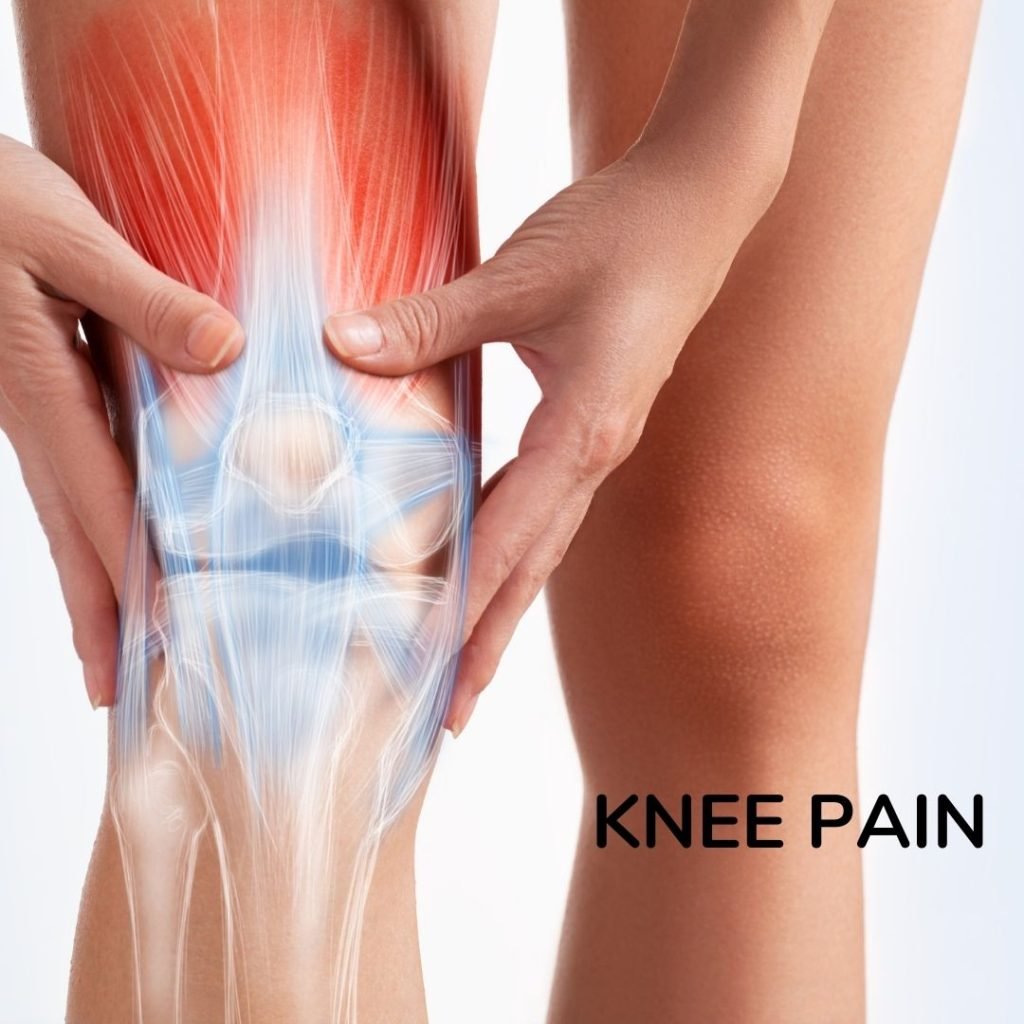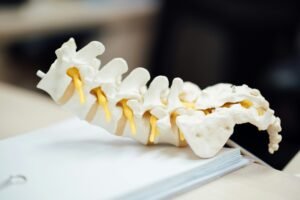
Understanding Knee Arthritis: The Silent Struggler
Knee arthritis is a condition that can affect anyone, regardless of age or lifestyle. In fact, it is one of the most common joints affected by arthritis. It often comes as a surprise when individuals, accustomed to an active lifestyle, suddenly find themselves grappling with knee pain and discomfort that seems to emerge from nowhere. It is worthwhile to recognise that this condition predominantly impacts the inner region of the knee more so than the outer part, resulting in uneven wear and tear on the joint cartilage.
Common Prevalence of Knee Arthritis
In the UK, over 10 million individuals are reported to have arthritis in various forms, with a significant portion suffering from knee-related issues. The prevalence of knee arthritis is alarming, highlighting a pressing health concern that warrants attention. The cartilage within the knee is designed to absorb shock and facilitate smooth movement. However, when friction starts to take hold due to degeneration of this cartilage, the result can often be crippling pain and inflammation.
The statistics are telling: 54% of those with knee arthritis experience severe swelling, an indicator that inflammation is at an advanced stage. You might notice that this swelling occurs after periods of activity or prolonged sitting. This inflammation is the body’s way of signalling that something is amiss, and it can frequently lead to discomfort that many dismiss as mere fatigue attributable to age or over-exertion.
Signs and Symptoms to Watch For
Awareness of the signs and symptoms of knee arthritis is crucial for early diagnosis and intervention. Besides swelling, individuals often report experiencing:
- Pain: Typically felt during and after movement, pain may vary in intensity and could resemble a dull ache or an acute stabbing sensation.
- Stiffness: Stiffness in the knee, especially noticeable in the morning or after sitting for extended periods, is common.
- Limited Range of Motion: You may find it challenging to fully extend or flex your knee.
- Creaking or Crunching Sounds: Known as crepitus, these sounds can arise when the knee moves, indicating the cartilage is deteriorating.
Increased inflammation within the joint can lead to a deterioration of your quality of life. The mental toll of chronic pain can be overwhelming, impacting not only physical capability but also emotional well-being. Take, for example, the personal account of someone who faced an unexpected diagnosis and had to alter their lifestyle significantly. Activities once enjoyed, such as jogging or hiking, became distant memories. The frustration of limiting cherished pastimes often accompanies the physical effects of knee arthritis, leading to feelings of isolation.
Impact of Knee Arthritis on Daily Life
The effects of knee arthritis extend beyond physical limitations; it can fundamentally alter the way you engage with daily activities. Routine tasks such as climbing stairs, getting into a car, or simply walking around the house may become daunting challenges. You may find yourself adapting by avoiding such tasks, leading to a more sedentary lifestyle, which can exacerbate the situation, creating a vicious cycle of pain and inactivity.
In many cases, social engagements might become hampered as you shy away from gatherings that require prolonged standing or walking. This further affects one’s mental health, as chronic pain can lead to feelings of anxiety and depression. Mental and emotional well-being should therefore be an integral part of the conversation surrounding arthritis treatment, alongside physical therapies.
Treatment Options to Consider
If you find yourself facing the tough reality of knee arthritis, exploring various treatment modalities is essential. Traditional treatments often include pain-relief medications and physiotherapy, but there are alternative therapies such as osteopathy and acupuncture that can offer relief. Osteopathy focuses on the body’s skeletal and muscular systems, promoting overall balance and health. Conversely, acupuncture targets specific points within the body to alleviate pain and enhance mobility through improved blood circulation.
Both of these treatments may provide you with coping strategies to manage the symptoms of knee arthritis. Consulting healthcare professionals who specialise in these areas can empower you with information tailored to your specific situation, leading to a more comprehensive management plan.
Ultimately, the journey through knee arthritis is unique for everyone, underscoring the importance of seeking tailored advice and support. Whether you’re at the beginning of your journey or looking for ways to better cope with chronic pain, being informed and proactive about your health can make a significant difference.
Keep an eye on the signs your body is presenting. Each symptom can be an important alert, and should you notice swelling or prolonged discomfort, it could be time to schedule a consultation with a healthcare provider. Understanding the interplay between knee arthritis and its implications on your daily life is the first step towards reclaiming control and finding suitable pathways for treatment.
Pain Management: A Closer Look at Osteopathy and Acupuncture
Knee arthritis, particularly osteoarthritis, is a prevalent condition that affects many individuals, often leading to significant discomfort and impaired mobility. The inner region of the knee joint is commonly impacted, exhibiting symptoms such as swelling and pain that can indicate an inflammatory process at work. Addressing these symptoms effectively is vital for maintaining a good quality of life, and this is where holistic approaches like Osteopathy and Acupuncture can play a crucial role.
Understanding Osteopathy
Osteopathy is a form of alternative medicine that emphasises the body’s ability to heal itself. Central to this philosophy is the belief that your body functions as a cohesive unit; therefore, any pain or discomfort you experience is often interconnected with overall health and lifestyle choices. Rather than merely treating symptoms, osteopaths focus on the underlying causes of your discomfort, which can include poor posture, muscle tension, or stress related to daily activities.
When managing knee arthritis, an osteopath may evaluate your posture, movement patterns, and even your diet. This holistic assessment aids them in crafting a treatment plan tailored specifically to you. Such a plan often includes recommendations for physical activity, stretching techniques, and nutritional advice that collectively aim to enhance your body’s natural healing processes. The idea is to allow your body to function optimally, thereby alleviating the discomfort associated with knee arthritis.
Osteopathy Techniques for Knee Arthritis Relief
- Manual Therapy: Gentle manipulation of the joints and muscles to improve mobility and alleviate tension.
- Exercise Prescription: Tailored exercise programmes designed to strengthen the muscles around the knee and enhance flexibility.
Studies have demonstrated that osteopathic treatments can lead to significant improvements in functional mobility and reductions in pain for patients suffering from arthritis. Moreover, osteopaths equip you with strategies for long-term lifestyle changes, fostering a proactive approach to your health.
How Acupuncture Works to Alleviate Pain
Acupuncture is another method that has gained recognition in the field of pain management, particularly for chronic conditions like knee arthritis. This ancient practice involves the insertion of fine needles into specific points of the body. While some may feel apprehensive at the thought of needles, many patients report little to no discomfort during the treatment.
The primary mechanism by which acupuncture alleviates pain lies in its ability to stimulate the nervous system. By triggering this system, acupuncture promotes the release of natural pain-relieving chemicals known as endorphins. These neurochemicals interact with the pain receptors in your brain, helping to create a sense of well-being and reducing sensations of pain.
The Evidence Behind Acupuncture
Recent research conducted by the National Institutes of Health has revealed that approximately 70% of individuals who suffer from chronic pain report significant relief following acupuncture treatments. The effectiveness of this modality is further showcased in studies focusing specifically on knee pain, demonstrating its ability to not only alleviate acute discomfort but also improve overall joint function.
Acupuncture for knee arthritis is particularly beneficial as it addresses both the physical and emotional aspects of pain. The relaxation that often accompanies acupuncture can contribute to a decreased perception of pain and an enhanced ability to cope with chronic conditions.
Personal Testimonies: Effectiveness of Osteopathy and Acupuncture
To better understand how osteopathy and acupuncture have benefited individuals, consider the testimonies of those who have pursued these alternative treatments:
“After suffering from knee arthritis for years, I was referred to an osteopath who completely changed my perspective on pain management. Not only did they help relieve my pain through manual therapy, but they also guided me on how to live a healthier lifestyle. I couldn’t be more grateful!” – Sarah J., 52
“I was sceptical about acupuncture at first, but after just a few sessions, I noticed a remarkable difference in my knee pain. The treatments seemed to wake something up inside me, and I felt more in control of my health than ever before.” – Tom R., 64
The compelling experiences of these individuals highlight the potential of osteopathy and acupuncture as effective pain management strategies. Their stories resonate with many who have tried traditional methods without success, reinforcing the notion that alternative treatments can offer hope.
Living with Arthritis: Lifestyle Changes that Make a Difference
Arthritis, particularly in the knees, is a prevalent condition that affects many individuals. It often manifests more significantly within the inner region of the knee than the outer aspects. Recognising subtle signs such as swelling can help you determine if there is an underlying inflammatory process affecting your joints. This realisation, while daunting, should empower you to explore effective lifestyle changes that can mitigate the impact of arthritis considerably.
Importance of Diet and Nutrition in Managing Knee Health
Your diet plays a crucial role in managing knee arthritis. Research indicates that dietary adjustments rich in omega-3 fatty acids and antioxidants can significantly combat inflammation—a key factor in the discomfort associated with arthritis. Incorporating foods like salmon, which is high in omega-3s, and blueberries, renowned for their antioxidant properties, can help alleviate arthritis symptoms over time.
Adopting a balanced diet is paramount. This means not just focusing on what you can eliminate – such as processed foods high in sugar and unhealthy fats – but also enriching your plate with anti-inflammatory foods. A colourful variety of fruits and vegetables should be your default choice. You might find joy in experimenting with various recipes that celebrate these nutritious ingredients. For example, a simple salmon and blueberry salad can be both appetising and beneficial for your joint health.
Exploring Exercise Options that Soothe rather than Strain the Knee
While it may seem counterintuitive, engaging in regular moderate exercise can enhance joint flexibility and strength. Gentle movements can actually serve to reduce pain over time. For instance, you may consider options like swimming and cycling, both of which are excellent low-impact exercise alternatives. Swimming, buoyed by water, allows for movement without the stress that typically accompanies land-based exercises. You might feel liberated, enjoying the sensation of weightlessness while strengthening your knees. This is particularly restorative for individuals suffering from joint pain.
Final Thoughts
The journey of managing arthritis may seem overwhelming at first, but embracing lifestyle changes can bring about significant improvements in your daily experiences. An emphasis on nutrition, gentle exercise, and mindful practices not only addresses the physical aspects of arthritis but also nurtures your mental well-being.
As you explore different strategies, do not hesitate to seek advice concerning the best approaches for your unique needs. Together with a tailored plan, you can enhance your quality of life while managing arthritis effectively.




